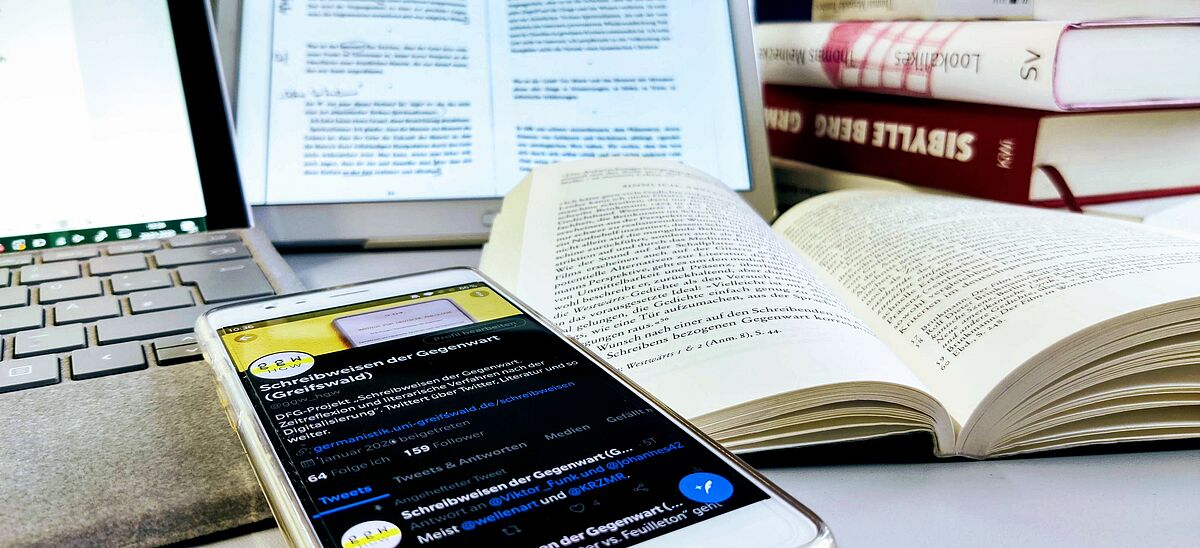What were the goals of the project?
The DFG project “Ways of Writing the Present. Reflection on Time and Literary Devices after Digitalisation” (2020-2023) investigated the interactions between time reflection and literary procedures under the conditions of digitalisation and thus responded to a new, previously unexplored focus on the present in literary and time-diagnostic texts. Whether blogs, Facebook or Twitter are the platforms on which articles are published, the topic or a structural element, they change the way a text is made, how and what is told - and how the present is thought. The goal of the project was to take stock of and analyse the ways in which the present and the contemporary are reflected, illustrated and profiled subject to digitalisation. With a view to their specific "ways of writing the present", the project examined time-diagnostic and literary texts in context for the first time and mutually related them to each other according to a media and cultural studies approach to time reflection.
Why the present "after digitalisation"?
By defining the "after digitalisation" period, the project made a new proposal for periodisation and focused on reactions to the consolidation of digital technologies since the mid-2000s, which began with the establishment of Web 2.0, social media and mobile internet. During this period, a striking number of texts appear in the field of culture and media studies that diagnose changes in the conception of time as a result of digitalisation and that place the 'present' tense in a dominant position. These texts themselves often use literary devices, but largely ignore the field of contemporary literature and generally choose examples from audiovisual media. This is where the research project set in by focusing on contemporary literature as an equally important place for reflecting on time. On the one hand, the literary and time-diagnostic texts circulating online and offline were analysed in terms of their rhetoric, linguistic images and narrative patterns. On the other hand, we investigated the conceptual potential of literary texts and showed how literary devices for dealing with digital media contour or produce new concepts of the present.
What were the central research questions of the project?
By linking close readings and discourse-analytical approaches, supported by corpus analyses, the research project aimed to 1) analyse concepts and the rhetoric of the new time-diagnostic discourse that is focused on concepts of the present, 2) examine contemporary literature in exemplary studies with regard to changes in the representation and reflection of the present, and 3) identify and fill a gap in the discussions on the concept of the present in the overdue narrowing of contemporary literature and time-diagnostic discourse. With the results, the project was able to make an innovative contribution to contemporary literary studies and at the same time introduce new perspectives for the diagnosis of the present.


